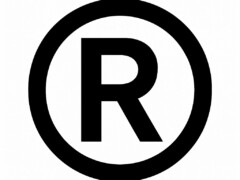The signing into law of the 2018 Farm Bill marked a watershed moment for the cultivation of industrial hemp and production of hemp-derived products in the U.S. By establishing a separate legal definition of “hemp,” excluding it from the definition of marijuana in the Controlled Substances Act, and giving the USDA jurisdiction over hemp regulation, the Farm Bill effectively cleaved hemp from its illegal cousin marijuana. The Farm Bill further invites states to submit individual plans for the cultivation of hemp and provides legal clearance for transportation of hemp and hemp products in interstate commerce, as well as via imports and exports. The floodgates have been opened. But only so far…
What the Farm Bill did not do was strip the FDA of its primary authority to regulate food, drugs and cosmetics containing hemp and hemp-derived products, including products containing CBD. The FDA has previously stated that it considers CBD to be a drug, and thus its use in food, drugs and cosmetics is prohibited under the Food Drug & Cosmetic Act (FDCA), unless the specific product has been approved for sale by the FDA. To date, only one product containing CBD, an anti-seizure medication, has been approved for sale by the FDA.
Thus, it is still illegal to sell any unapproved foods, drugs or cosmetics containing CBD in the U.S.
As anyone in the industry knows, the CBD industry is exploding, with notable companies such as Coca-Cola and Walmart announcing their intentions to begin exploring marketing CBD products. Even the FDA is not blind to this trend. Days after the signing of the Farm Bill, FDA Commissioner Scott Gottleib issued a press release reaffirming the FDA’s position that it is unlawful under the FDCA to introduce food containing added CBD or THC into interstate commerce. However, acknowledging the interest both of the public and Congress in “fostering the development of appropriate hemp products,” Gottleib also pledged to hold stakeholder
meetings in the near future in an effort to solicit suggestions on how to make “legal pathways” for bringing CBD products to market more predictable and efficient. Notably, Gottleib also singled out products bearing any medical or health claims as particularly disturbing to the FDA, signaling that these products are most likely to be subject to FDA enforcement actions.
For now, CBD remains in political limbo (much like our federal government which has now been shut down for 24 days!), but the FDA cannot resist the sheer market force of CBD indefinitely. While you can never be too careful with your business, you can also be smart about which way the wind is blowing.
The Food Law Firm has worked extensively with cannabidiol (CBD) products. We treat CBD products like any other food or supplement product, but are always attuned to the limitations of this approach. This is a developing area of law that seems to change day-by-day. The industrial hemp industry is gaining legitimacy, but its progress is haphazard. FDA regulation, trademark law, and even Alcohol and Tobacco Tax and Trade regulations have wildly uneven views on CBD as a product ingredient. If you want to get a CBD product to market, you have to be good at balancing regulations from different agencies that are incompatible. The Food Law Firm has provided comprehensive, nuanced guidance on:
- The marketing and labeling of products containing CBD.
- Production contracts with agricultural producers for raw CBD materials.
- The co-pack manufacturing of consumables containing CBD.
- Trademarking strategies for CBD products.
If you have a CDB product, your regulatory and commercial risks need to be comprehensively managed. We can help you navigate this tenuous are of law. Set up a consultation today.















